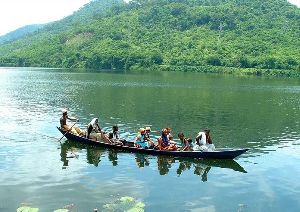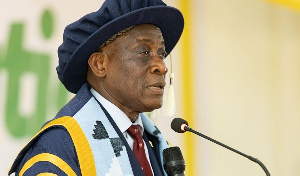General News of Sunday, 20 September 2020
Source: GNA
43 pregnant girls write WASSCE, BECE in Kassena-Nankana West
The Kassena-Nankana West District of the Upper East Region has recorded 43 pregnancies in the just ended West Africa Senior Schools Certificate Examination (WASSCE) and the Basic Education Certificate Examination (BECE).
Also, while 15 student nursing mothers took part in the examination, out of the total of 1838 girls registered, 75 did not appear to write any of the papers.
For the WASSCE, of 898 girls that registered, 21 were pregnant, 11 were nursing mothers and 14 did not appear to write while out of the 940 BECE candidates, 22 were pregnant, four were nursing mothers and 61 did not write.
This was revealed at a stakeholders’ discussion, in Sirigu, on finding solutions to addressing sexual and reproductive health challenges of adolescents, organized by the Departments of Gender and Children under the Ministry of Gender, Children and Social Protection with funding support from the United Nations Population Fund (UNFPA) and the Global Affairs of Canada.
Madam Agnes Wadadaane, the Kassena-Nankana West District Girls Education Officer of the Ghana Education Service (GES) who gave the statistics said during the WASSCE, out of the 125 girls registered at the Paga Senior High School, three were pregnant, one was a nursing mother, while one did not write.
At the Chiana SHS, where 229 girls were registered, none was pregnant and none dropped out, but three were nursing mothers and at the Mirigu SHS, where 125 girls were registered, five were pregnant and five did not appear to write.
The Sirigu Integrated SHS registered 294 girls of which 11 were pregnant, four nursing mothers and six dropped out, while at the Nabaango SHS, out of the 129 girls who were registered, two became pregnant, three were nursing mothers, while two dropped out.
The District Girl Education Officer expressed worry about the situation and noted that the girls who did not appear to write the examination could equally be pregnant, nursing babies or married.
She, therefore, appealed to the stakeholders to devise ways to deal with the canker and promote the education of girls in the area.
Pognaba, Francisca Akanpoe, the Queen-mother of Tangasia Community noted that before the intervention of the UNFPA adolescent reproductive programme, the situation was worse and parents did not also pay much attention to the progress of their children.
The Queen-mother noted that the girls on each school day would lie to their parents about going to school, but went to other places, especially on Fridays and market days.
Mrs Abiba Karim, the Headmistress of Chania Primary School, noted that as a result of the UNFPA programme, she was able to organize a durbar, where the Department of Social Welfare and Community Development sensitized the school children and parents with pictorial and visual presentations on the negative effects of engaging in bad practices, especially those acts that contributed to a change in attitude towards education.
Mrs Georgina Abetese-Ako, the Regional Director of the Department of Children, said although the three-year project had made some significant gains, the current situation showed there was the need to intensify efforts at tackling issues affecting children especially girls who were most vulnerable.
Mrs Aberese-Ako said the project was being implemented in six districts in the region and urged parents to live up to their responsibilities and be concerned about the welfare of their children.
The programme brought together traditional authorities, parents, religious leaders, assembly members, GES among other stakeholders from the Bawku West, Builsa South and Kassena-Nankana West Districts.
Entertainment

Daddy Lumba wasn't sick for 17 years – Great Ampong
Opinions









